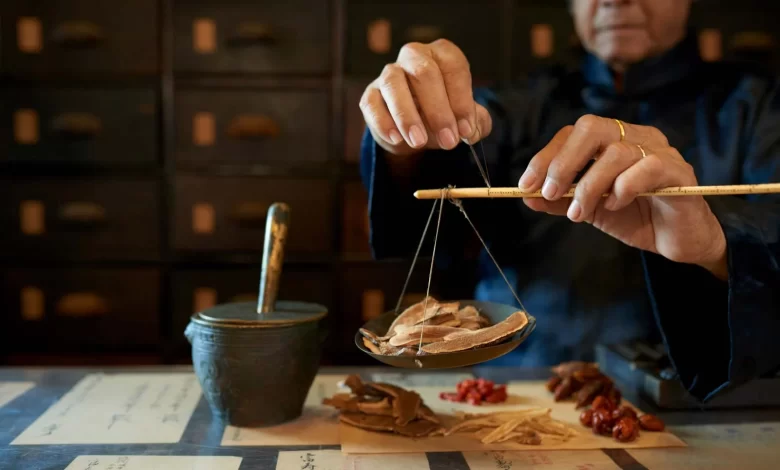Understanding the Principles of Traditional Chinese Medicine

Traditional Chinese Medicine (TCM) is an ancient form of healthcare that has been practiced in China for thousands of years. It encompasses a variety of techniques and practices, including acupuncture, herbal medicine, and tai chi, all aimed at enhancing health and preventing illness. In this article, we’ll explore the core principles that underpin Traditional Chinese Medicine and discuss some of the benefits it offers.
The Foundations of TCM
At the heart of TCM lies the belief in the interconnectedness of the body, mind, and environment. Health, in TCM, is considered a harmonious balance between these elements, and disease is viewed as a result of imbalance or blockages in the body’s vital energy, known as Qi (pronounced “chee”).
Yin and Yang
One of the most fundamental concepts in TCM is the theory of Yin and Yang. These two forces are opposites yet complementary, and their balance is essential for maintaining health. Yin represents aspects such as cold, rest, passivity, and femininity, while Yang represents warmth, activity, action, and masculinity. TCM treatments often aim to balance Yin and Yang within the body.
The Five Elements
Another key component is the Five Elements theory, which categorizes natural phenomena into five groups: wood, fire, earth, metal, and water. Each element is associated with different organs and tissues in the body. Understanding the relationships and interactions between these elements helps TCM practitioners diagnose and treat health issues.
Acupuncture Benefits
Acupuncture is one of the best-known modalities of TCM, involving the insertion of fine needles into specific points on the body to manipulate the flow of Qi. Research suggests that acupuncture can be beneficial in treating a variety of conditions, such as chronic pain, stress, and migraines. It is thought to stimulate the body’s natural healing processes and promote physical and emotional well-being.
How Acupuncture Works
Acupuncture points are believed to be situated on meridians, channels through which Qi flows. By targeting these points, acupuncture seeks to restore the flow of Qi and, consequently, the body’s balance. While Western medicine has not fully explained how acupuncture works, it is increasingly accepted as a complementary treatment due to its therapeutic effects.
Herbal Medicine
TCM also makes extensive use of herbal medicine, with formulas that are tailored to the individual’s specific condition. These herbs are used to strengthen, build, and support the body or to clear it of excess problems like a cold, fever, or acute pain.
Personalized Treatments
In TCM, treatments are highly personalized. A practitioner will consider not only the patient’s symptoms but also their overall constitution, lifestyle, and emotional state. This holistic approach ensures that the treatment addresses the root cause of the problem rather than just alleviating symptoms.
Conclusion: Traditional Chinese Medicine Scottsdale AZ
Traditional Chinese Medicine offers a unique perspective on health and wellness, emphasizing balance, harmony, and the natural flow of energy within the body. While it is vastly different from Western medicine, the benefits of practices like acupuncture are gaining recognition worldwide. Whether used alone or as a complement to other treatments, TCM principles can play a significant role in maintaining health and treating disease. Understanding and embracing the wisdom of ancient medicine, such as TCM, can provide an alternative or supportive option for those seeking holistic approaches to health and healing. If you’re considering TCM, it is essential to consult with a qualified practitioner to ensure the best care tailored to your individual needs.






